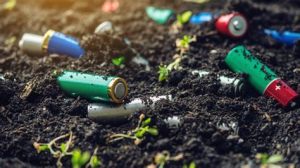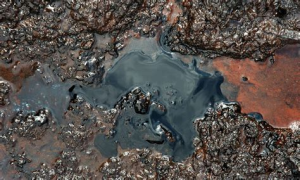
Why Do Some People Enjoy Restoring Classic Cars?
December 21, 2021
Why Route Planning is Essential to a Fleet Business
December 22, 2021Soil contamination can come from a variety of sources, including human activities such as oil drilling, mining, and extensive farming. Many pollutants can affect soil, including pesticides, petroleum, and heavy metals. Some substances can even be volatile, such as lead and mercury, and can mix with rainwater and change the pH of soil. Some pollutants can even be released during the process of sewage treatment. Despite these concerns, it is important to protect the soil we live on.
Some of the most common pollutants that are present in soil are petroleum, coal, and industrial waste. These chemicals can affect everything from the health of plants to animal life. They can also harm human health. There are a few common sources of soil contaminants and the most concerning of those should be eliminated as quickly as possible. Once you understand the types of pollution and how they impact the environment, you’ll be better prepared to identify the potential for remediation and prevention. For information on Remediation Contractors, visit a site like Soilfix
Natural disasters are another common source of soil contamination. These events can have drastic effects on the landscape, affecting agriculture. They can also release large amounts of contaminated debris and dust. This debris can damage the soil, causing a significant amount of soil contamination. These are just some of the many sources of soil pollution. Soil pollution can be caused by natural processes and human activities. Soil contaminants are harmful to plants and animals, but you can prevent it.
Soil contamination affects every part of our ecosystem. Not only does it harm plants, but it can affect human health. For instance, if the soil has been contaminated with heavy metals, the affected areas may experience health problems. Moreover, the polluted area may not be able to produce healthy crops. Soil contamination is often a long-term problem, and it can have lasting negative effects. To protect our planet, we must prevent soil pollution.
Soil contamination can come from a variety of sources. Some pollutants can be natural, but others are created by human activities. These contaminants are insoluble in the soil and may have adverse effects on health. Biological agents are another cause of soil pollution, such as bacteria and fungi from food production, sewage and hospital waste, for example. Soil pollutants can also enter the groundwater and affect the growth of crops and other organisms. It is therefore imperative to protect our soil. Soil is essential for all life. Toxic contamination of the soil will destroy these living organisms.
The main source of soil pollution is the construction of buildings and homes. These sites are almost everywhere and can be a major source of contamination. Almost any type of chemical substance can pollute and these can occur from domestic waste, construction, industrial facilities and flawed agricultural methods. The higher the risk, the more likely the pollutants are to accumulate in the soil. This is why it is important to take precautions.






